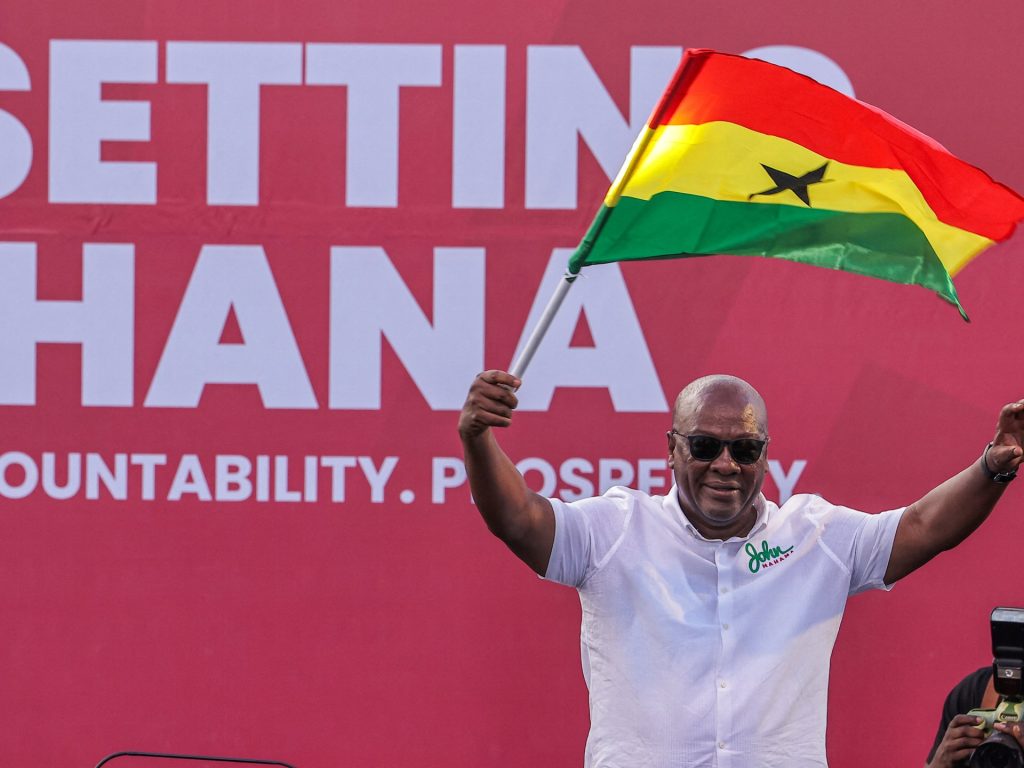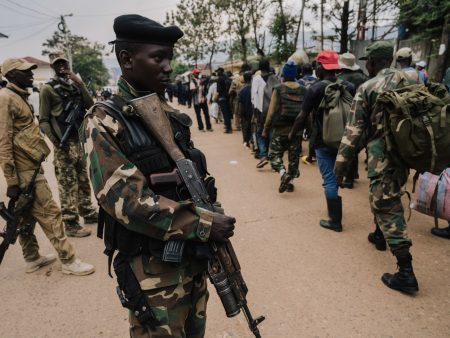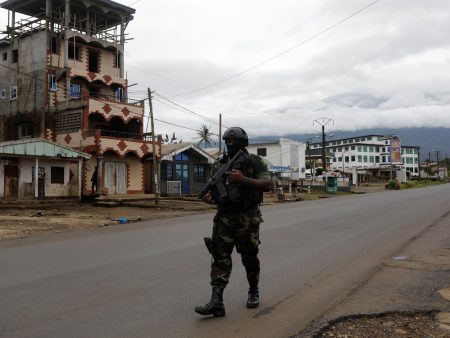Ghana’s political landscape shifted dramatically with the conclusion of the 2024 presidential election, marking a return to power for former President John Dramani Mahama and the National Democratic Congress (NDC). Incumbent Vice President Mahamudu Bawumia, representing the New Patriotic Party (NPP), gracefully conceded defeat, acknowledging the electorate’s clear mandate for change. This transition of power concludes two terms of NPP governance under President Nana Akufo-Addo, a period marked by significant economic challenges, including soaring inflation, a debt default, and an eventual bailout from the International Monetary Fund. The election results resonate with the public’s desire for new leadership to address the pressing economic concerns that have gripped the nation.
Bawumia’s concession underscored the decisive nature of Mahama’s victory. He publicly acknowledged the outcome, confirming that he had personally contacted Mahama to offer his congratulations. This act of sportsmanship reflects the maturity of Ghana’s democratic process, ensuring a peaceful transfer of power. The NPP’s internal tally corroborated the electoral victory, further solidifying Mahama’s win. Simultaneously, the NDC secured a majority in the parliamentary elections, granting them control over both the executive and legislative branches of government, and providing a strong foundation for their policy agenda.
Mahama’s return to the presidency signals a renewed hope for many Ghanaians who believe he is equipped to navigate the nation through its current economic turbulence. His previous experience in the highest office, coupled with his campaign promises to “reset” various aspects of governance, resonated strongly with voters, particularly the youth, who are looking for opportunities and solutions to the economic hardship. The widespread celebration that erupted following the election reflects the optimism and anticipation surrounding Mahama’s second term.
The backdrop of Ghana’s economic woes undoubtedly played a pivotal role in shaping the election outcome. The country’s dependence on gold and cocoa exports left it vulnerable to global market fluctuations, contributing to the economic crisis. The Akufo-Addo administration’s handling of the economic downturn became a central campaign issue, with Mahama capitalizing on public dissatisfaction with the NPP’s performance. The IMF bailout, while providing a degree of financial stability, became a symbol of the economic struggles faced by ordinary Ghanaians.
Mahama’s victory represents more than just a change in leadership; it symbolizes a public mandate for economic recovery and renewed stability. The electorate’s decision reflects a desire for fresh perspectives and innovative solutions to address the pressing financial challenges facing the nation. Mahama now faces the daunting task of fulfilling his campaign promises and delivering on the expectations of a population eager for tangible improvements in their economic well-being.
The transition of power marks a significant turning point in Ghana’s political trajectory. The NDC’s return to governance, fueled by public discontent with the prevailing economic climate, signifies a shift in the nation’s priorities. Mahama’s second term will be closely scrutinized as he embarks on the challenging path of economic revitalization, aiming to restore stability and prosperity to Ghana. The world will be watching as he strives to deliver on his promises and navigate the complexities of leading a nation yearning for change.









